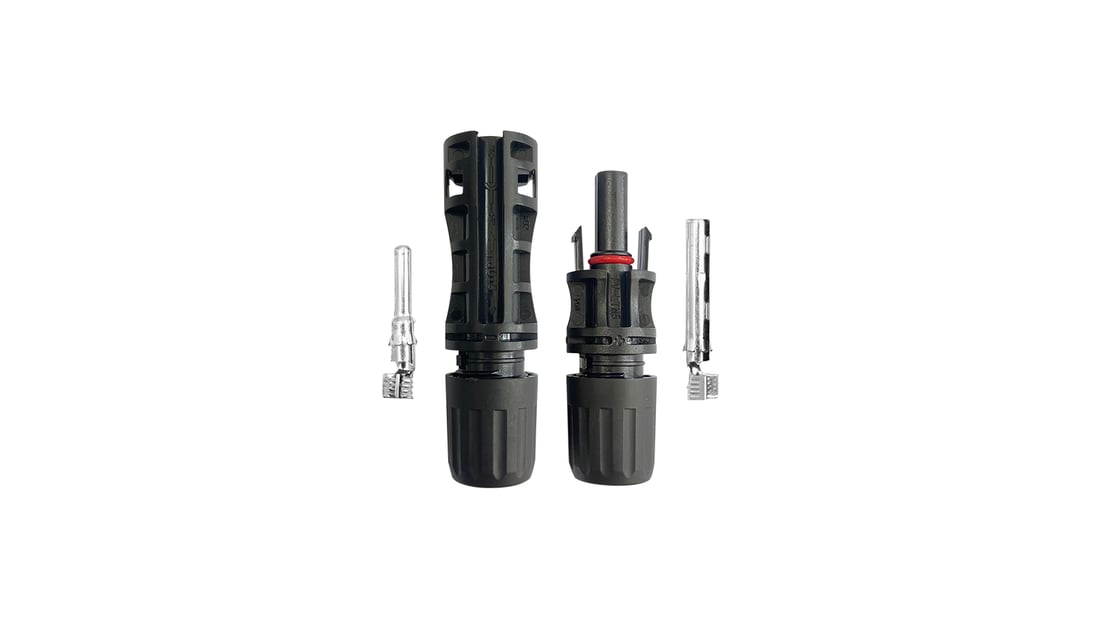Introduction
When it comes to harnessing the power of the sun, solar connectors play a crucial role in ensuring a safe and efficient connection between solar panels and other components of a solar energy system. With the increasing popularity of solar energy, there are various types of solar connectors available in the market. In this comprehensive guide, we will explore the different solar connector types, their features, and their applications. Whether you are a homeowner looking to install a solar panel system or a professional in the solar industry, this article will provide you with valuable insights to make informed decisions.
1. MC4 Connectors: The Industry Standard
The MC4 (Multi-Contact 4) connector is the most widely used solar connector type in the industry. Known for its reliability and durability, MC4 connectors are designed to withstand harsh environmental conditions such as extreme temperatures, moisture, and UV radiation. These connectors consist of a male and female connector that can be easily connected and disconnected without the need for any special tools. MC4 connectors are compatible with most solar panels and are commonly used in residential and commercial solar installations.
2. Amphenol Connectors: Heavy-Duty Performance
Amphenol connectors are known for their heavy-duty performance and are commonly used in large-scale solar projects and industrial applications. These connectors are designed to withstand high currents and voltages, making them suitable for demanding solar energy systems. Amphenol connectors come in various types, such as the H4, which is compatible with both thin-film and crystalline solar panels. These connectors offer excellent electrical conductivity and are highly reliable, ensuring optimal energy transfer.
3. T-Branch Connectors: Expanding Your Solar System
If you are looking to expand your existing solar system, T-branch connectors are an ideal choice. These connectors allow you to connect multiple solar panels in parallel or series, depending on your system requirements. T-branch connectors simplify the installation process by eliminating the need for additional wiring and reducing the number of connections required. They are commonly used in off-grid solar systems and can accommodate a higher number of solar panels, providing flexibility for future expansion.
4. Y-Branch Connectors: Efficient Solar Panel Arrangement
Y-branch connectors are similar to T-branch connectors but are specifically designed to connect solar panels in a Y-shaped configuration. This arrangement is commonly used in situations where space is limited or when solar panels need to be installed in a triangular pattern. Y-branch connectors allow for efficient cable management and minimize the overall length of wiring required. These connectors are most commonly used in residential and small-scale solar installations.
5. Waterproof Connectors: Protection Against the Elements
In outdoor solar installations, protection against moisture and other environmental factors is crucial. Waterproof connectors are designed with specialized sealing mechanisms to ensure a watertight connection between solar panels and other components. These connectors are typically constructed using materials that are resistant to UV radiation and corrosion. Waterproof connectors are commonly used in solar systems installed in areas with high humidity or frequent rainfall.
6. Fuse Connectors: Enhanced Safety
Fuse connectors are equipped with built-in fuses that provide an extra layer of protection for your solar energy system. These connectors help prevent damage to your solar panels and other components in the event of a short circuit or overcurrent. Fuse connectors are commonly used in solar arrays with a large number of solar panels or in situations where the solar panels are exposed to potential electrical hazards. The fuses can be easily replaced, ensuring the continued operation of the system.
7. Snap-In Connectors: Quick and Easy Installation
For those seeking a hassle-free installation process, snap-in connectors are an excellent choice. These connectors are designed to be easily snapped into place, eliminating the need for additional tools or complicated wiring procedures. Snap-in connectors are commonly used in DIY solar panel kits and small-scale residential installations. They offer a user-friendly solution without compromising on the performance and reliability of the solar energy system.
8. Junction Box Connectors: Neat and Organized Wiring
Junction box connectors provide a convenient solution for organizing and connecting the wiring of solar panels. These connectors are integrated into the junction box of each solar panel and allow for easy connection to other panels or system components. Junction box connectors eliminate the need for external wiring, resulting in a cleaner and more organized installation. They are commonly used in both residential and commercial solar systems.
9. Solar Cable Connectors: Efficient Power Transmission
Solar cable connectors, also known as PV cable connectors, are specifically designed for the transmission of high currents in solar energy systems. These connectors are highly efficient in terms of power transmission and minimize energy loss. Solar cable connectors are compatible with both single-core and multi-core solar cables, providing flexibility in system design. They are commonly used in large-scale solar installations and are suitable for both indoor and outdoor applications.
10. Micro Inverter Connectors: Individual Panel Optimization
Micro inverters are becoming increasingly popular in solar panel systems, as they allow for individual optimization of each solar panel. Micro inverter connectors are designed to connect each solar panel to its dedicated micro inverter. These connectors enable independent power optimization, maximizing the energy output of each panel and improving the overall performance of the system. Micro inverter connectors are commonly used in residential and commercial solar installations.

